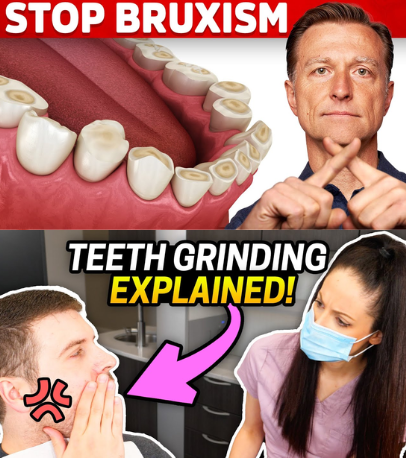
What Is Nighttime Teeth Grinding?
Teeth grinding at night, medically known as sleep bruxism, is a condition where people clench or grind their teeth unconsciously while sleeping. You might not even realize you do it—until a partner hears the grinding noise, or you wake up with a sore jaw. While occasional teeth grinding isn’t usually harmful, regular and intense grinding can damage teeth, strain jaw muscles, and lead to long-term oral health problems.
Why Do People Grind Their Teeth at Night?
Teeth grinding isn’t random—it often has underlying causes. Some of the most common triggers include:
- Stress and anxiety – Emotional tension is one of the leading reasons for nighttime clenching.
- Sleep disorders – Conditions like sleep apnea can increase the risk of bruxism.
- Bite problems (malocclusion) – Misaligned teeth make grinding more likely.
- Lifestyle factors – Excessive caffeine, alcohol, or smoking may worsen the condition.
- Medications – Certain antidepressants are linked to teeth grinding.
- Genetics – It sometimes runs in families.
Think of it like your body’s way of “venting” stress while you sleep—except your teeth pay the price.
Symptoms of Nighttime Teeth Grinding
Because it happens while you’re asleep, you may not notice bruxism until symptoms appear. Watch for these common signs:
- Jaw pain or tightness upon waking.
- Headaches, especially around the temples.
- Worn-down, chipped, or cracked teeth.
- Tooth sensitivity due to enamel erosion.
- Clicking or popping sounds in the jaw.
- Sleep disruption for you or your partner due to grinding noises.
If left untreated, these symptoms can progress into more serious jaw disorders and long-term dental damage.
Video : Teeth Grinding
How Teeth Grinding Affects Daily Life
At first, bruxism may just seem like an annoying habit. But over time, it can impact daily comfort, sleep quality, and even self-confidence. Worn teeth can make eating painful, frequent headaches can drain your energy, and severe jaw strain may even limit how wide you can open your mouth. Beyond the mouth, poor sleep from grinding may cause fatigue, mood swings, and reduced productivity.
Diagnosis and Dental Examination
Since bruxism often goes unnoticed, dentists play a key role in diagnosing it. They may spot flattened or fractured teeth, worn enamel, or jaw tenderness during a routine checkup. Sometimes sleep studies are recommended to confirm the condition, especially if it’s linked to sleep apnea.
Treatment Options for Teeth Grinding
The good news? Teeth grinding is treatable. The right solution depends on the cause and severity:
- Mouthguards or splints – Custom dental devices worn at night protect teeth from grinding damage.
- Stress management – Relaxation techniques, yoga, or therapy help reduce emotional triggers.
- Dental corrections – Orthodontic treatment or reshaping of teeth can fix bite issues.
- Lifestyle changes – Cutting back on caffeine, alcohol, and smoking may reduce grinding episodes.
- Medications – In severe cases, muscle relaxants may be prescribed short-term.
For many people, a combination of protective gear and stress reduction works best.
Home Remedies and Prevention Tips
Simple daily habits can also help manage or prevent nighttime grinding:
- Apply a warm compress to the jaw before bed to relax muscles.
- Practice jaw stretches to reduce tension.
- Maintain good sleep hygiene—consistent bedtimes and limiting screens before bed.
- Avoid chewing on pens, ice, or gum, which can reinforce clenching habits.
- Track your stress levels and find healthy outlets like exercise or meditation.
When to See a Dentist or Doctor
If you wake up with frequent jaw pain, notice damaged teeth, or your partner complains about grinding noises, it’s time to seek help. Professional care prevents long-term complications like tooth fractures, gum recession, or temporomandibular joint (TMJ) disorders.
Video : Together Dental – How to treat teeth grinding and jaw tension
Conclusion: Take Control of Teeth Grinding
Teeth grinding at night might feel invisible, but its effects on your oral health and overall well-being are very real. By recognizing the symptoms, understanding the causes, and exploring both professional treatments and lifestyle changes, you can protect your teeth, relieve jaw pain, and sleep more peacefully. Your smile deserves more than silent damage—take action today for a healthier tomorrow.


